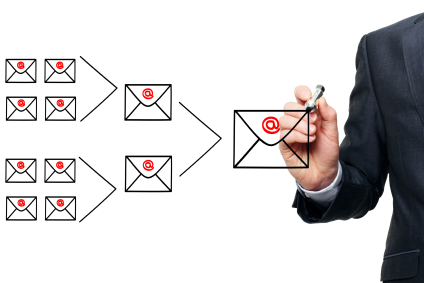Cross channel. Multi channel. Omni channel. Whatever channel your organization is focused on, chances are you either use or are in need of a marketing campaign management tool. Developing, deploying and managing a campaign for any organization (B2B or B2C) can be time consuming and stressful. Particularly if the C-suite is looking for an immediate impact. You know the conversations, “Is it working? When will we see the ROI? Can we do the same thing with a different market or vertical?”
So here are a few tips on how marketers can create, launch and oversee better marketing campaign management that provides deeper insights into what’s working and what’s not.
Determine the campaign goal
Take a step back and consider, “What is the goal of this campaign?” This simple, yet often ignored question, can determine who you are marketing to, what your message is, and how you plan to nurture your audience to drive results. Create campaign goals that align with your organization’s needs. For example, Company A’s goal for a marketing campaign is to improve customer loyalty and customer retention by 12 percent. Company B’s goal is to increase sales by $2 million by the end of the second quarter. Whatever you campaign goal is, it should be realistic and achievable. Nothing’s worse than setting the bar too high and falling short of anticipated results.
Establish a budget and timeline
There’s no such thing as a free lunch. I once worked with an organization who bought a one year contract with an ESP with the intention of “seeing how they do it so we can build our own.” As far as I know, they’re still building it. The point is, whether you have an in-house solution, a marketing automation platform, or an agency partner handling your campaign, you still need to have a budget and a timeline attached to your goal.
Most marketers sell themselves short and don’t allow enough time and budget for the projects they take on. Make sure management understands the investment (time and money) needed to make the campaign a success so they can better understand the ROI in the long run.
Remember, higher budgets do not guarantee better results. The success of a marketing campaign depends on many factors, including the quality of content, personalization or tailoring for the target audience (or segment), and the media and channels selected.
Manage and monitor the campaign
OK, so you’ve created the content, added design elements, and are ready to launch… but before you press send, you need to devise a game plan. Whether you’re working with an agency or handling everything in-house, you need to be prepared to monitor the campaign and manage all of its moving parts.
In addition to monitoring the progress and efficiency of the campaign, you need to regularly assess its effectiveness. For example, if the objective of a three-month-long G2 Crowd campaign is to gain 100 new product reviews and you have only 20 by the end of the second month, achieving your goal is unlikely unless you make some changes to the campaign.
Remember, customers create the most value for you when you create the most value for them. Focus on creating marketing campaigns that build engagement with your target audience by providing content that is relevant and interesting to them. Engagement builds relationships and relationships build revenue.

